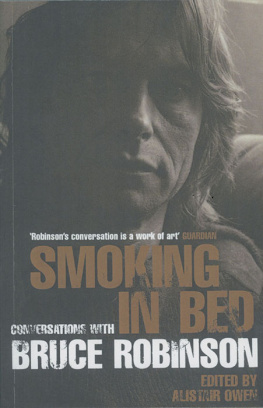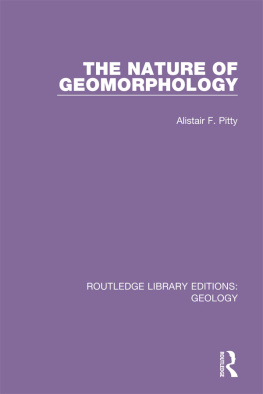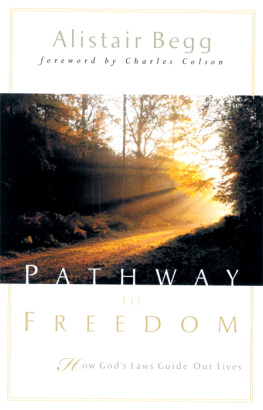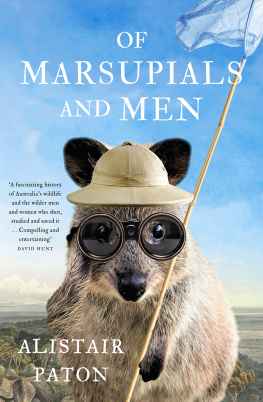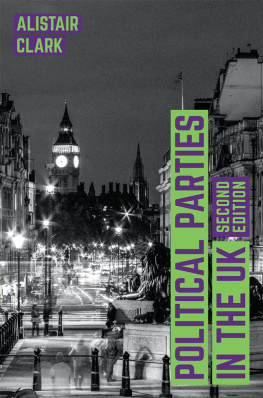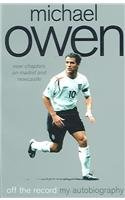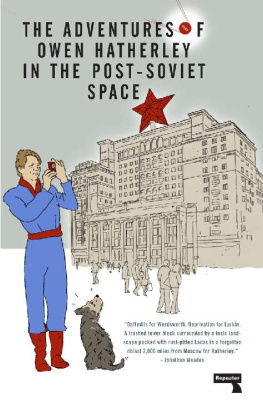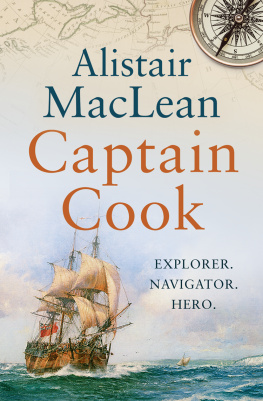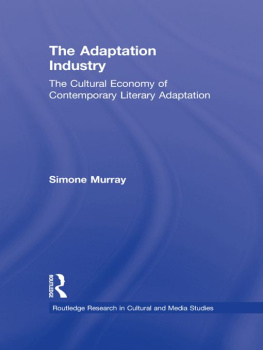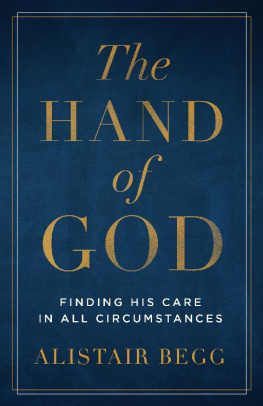Alistair Owen - The Art of Screen Adaptation
Here you can read online Alistair Owen - The Art of Screen Adaptation full text of the book (entire story) in english for free. Download pdf and epub, get meaning, cover and reviews about this ebook. year: 2020, publisher: Oldcastle Books, genre: Detective and thriller. Description of the work, (preface) as well as reviews are available. Best literature library LitArk.com created for fans of good reading and offers a wide selection of genres:
Romance novel
Science fiction
Adventure
Detective
Science
History
Home and family
Prose
Art
Politics
Computer
Non-fiction
Religion
Business
Children
Humor
Choose a favorite category and find really read worthwhile books. Enjoy immersion in the world of imagination, feel the emotions of the characters or learn something new for yourself, make an fascinating discovery.

- Book:The Art of Screen Adaptation
- Author:
- Publisher:Oldcastle Books
- Genre:
- Year:2020
- Rating:5 / 5
- Favourites:Add to favourites
- Your mark:
- 100
- 1
- 2
- 3
- 4
- 5
The Art of Screen Adaptation: summary, description and annotation
We offer to read an annotation, description, summary or preface (depends on what the author of the book "The Art of Screen Adaptation" wrote himself). If you haven't found the necessary information about the book — write in the comments, we will try to find it.
The Art of Screen Adaptation — read online for free the complete book (whole text) full work
Below is the text of the book, divided by pages. System saving the place of the last page read, allows you to conveniently read the book "The Art of Screen Adaptation" online for free, without having to search again every time where you left off. Put a bookmark, and you can go to the page where you finished reading at any time.
Font size:
Interval:
Bookmark:
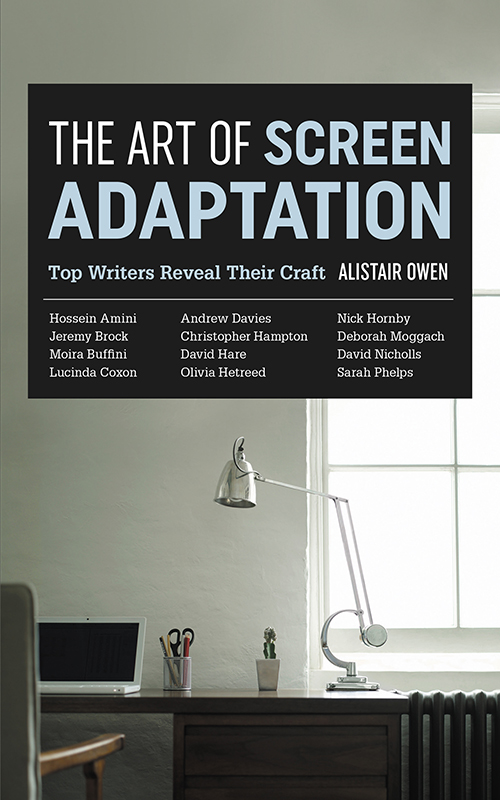
PRAISE FOR ALISTAIR OWEN
Smoking in Bed: Conversations with Bruce Robinson
The most purely likeable book about cinema I have ever read
DAVID HARE , Guardian , Books of the Year
Story and Character: Interviews with British Screenwriters
Owens thorough research and penetrating questions are what make this book. The conversation is hilarious as well as informative, and budding screenwriters should pay close attention
NINA CAPLAN , Observer
I look forward to reading more volumes from Owen that will match this fascinating, insightful collection
CHRISTOPHER FOWLER , Independent on Sunday
Hampton on Hampton
Intellectually intimate, unpretentious, informative, entertaining, anecdotal, fearless, funny, serious, an addictive page-turner, one of the great memoirs
CRAIG RAINE , Observer , Books of the Year
A hugely enjoyable book. Droll and very intelligent, but also highly informative about the making of plays and films, and more or less essential reading if you want to know what a writer does and feels
RICHARD EYRE
THE ART OF
SCREEN ADAPTATION
Top Writers Reveal Their Craft
Alistair Owen
creative essentials
Introduction
My first screenplay commission was an adaptation. By the time I had sketched out a screen story with the producer and was sitting down to start the script, the location had shifted from Devon to New England, the leads had aged from early teenagers to young adults, and the last third of the novel had been jettisoned. The novel didnt inspire me, so that wasnt a problem. But cut adrift from it, without the compass of the source material or a compelling alternative course, I wrote rubbish and that was a problem. We had barely begun the second pass before I, too, was jettisoned. I learned some good lessons, though. Never adapt a book you dont love. Never accept a job just for the work. And never, ever, tell yourself, Ill fix it in the next draft, because you might not get a chance to write one.
I subsequently turned out other, better adaptations and my first rewrite; adaptation of a different kind. Even so, when Creative Essentials suggested I write a How To book on the subject, I still had one key question: can I really tell other people how to adapt when I cant back it up with a produced adaptation of my own? The answer was no, I couldnt. What I could do, however, was assemble some of the best screenwriters in the business and ask them how it was done. So I did, and here they are: 12 writers, 22 case studies and one career retrospective, exploring adaptations of modern and classic novels, nonfiction books and stage plays, on film and television, in the UK and Hollywood. None of the interviewees has fewer than five produced adaptations on their CVs and some of them have scripted a lot more offering a unique and varied insight into the art and craft of adapting for the screen.
Each interview explores the writers general approach to adaptation before focusing on two specific case studies with the exception of the conversation with Andrew Davies, perhaps screen adaptations most prolific practitioner, where I took the opportunity to couple the set questions with a broader tour of his extensive career. Otherwise, the set questions asked depend on the case studies discussed: fiction, or nonfiction, or both. The case studies were my choice in every instance, and were chosen to provide as wide and as recent a range of feature films and television series as possible although I have deliberately not included plot synopses, in the hope that readers will be inspired to go on the same journey I made through the source material and resulting adaptations. I have, on the other hand, included interviews with two writers I have talked to previously Hossein Amini (in Story and Character: Interviews with British Screenwriters , Bloomsbury, 2002) and Christopher Hampton (in Hampton on Hampton , Faber, 2005) as both can claim significant adaptation credits since those books appeared, and both have had a considerable influence on my own writing over the years.
At this point, my thanks must go to all the interviewees for so generously giving up their time, and to their various agents and publishers (particularly Mary Mount at Penguin and Dinah Wood at Faber) for putting me in touch with them. Extra thanks to my first interviewee (chronologically if not alphabetically), Jeremy Brock, who helped me road-test the Q&A format and has remained an unfailing source of encouragement throughout. A big thank you, too, to the entire team at Creative Essentials: Ion, Lisa, Ellie, Elsa, Jennifer, Clare and Claire and my editor, Hannah Patterson, who enthusiastically embraced my adaptation of her original pitch. Thanks also to Bethany Davies for her invaluable transcription skills; to Rob Benton and Daniel Rosenthal for their insightful comments on the manuscript (twice over to Daniel for thoughtfully pointing Hannah in my direction in the first place); and to my book and screen agents at Sheil Land Associates, Gaia Banks and Lucy Fawcett, for all their efforts on my behalf while this project was under way. And a huge thank you, finally, to my friends and my parents and especially to Louise Halfpenny, the best cheerleader any writer could hope for.
Alistair Owen
January 2020
Hossein Amini
Hossein Amini was born in 1966 in Tehran, Iran.
His screen adaptation credits include: Jude (1996, novel Jude the Obscure by Thomas Hardy); The Wings of the Dove (1997, novel by Henry James); Drive (2011, novel by James Sallis); Our Kind of Traitor (2016, novel by John le Carr); and The Alienist (2017, novel by Caleb Carr). He also wrote and directed The Two Faces of January (2014), based on the novel by Patricia Highsmith, and co-created and co-wrote the BBC series McMafia (2018), based on the book by Misha Glenny.
The Wings of the Dove was Oscar- and BAFTA-nominated for Best Adapted Screenplay.
Approaches to Adaptation
Do you prefer to adapt material which chimes with your own work, or material which is completely different and gives you a chance to try out new things?
I like to do both. I think theyre almost different challenges, especially doing them consecutively. After working on something personal, something I wanted to explore more deeply, the idea of going on an intellectual holiday by reading up on stuff that I dont know anything about is actually really attractive. Research has always been the bit I love most, learning about a completely new subject, and usually Ill choose assignments based on how interested I am in those subjects. Often they tend to be history, because that was something I studied and have always been quite passionate about. But if a sci-fi thing comes along and I like the idea of researching space and stars and the creation of planets, then Ill go, Yeah, thatll be fun. I dont necessarily only think about the source material; sometimes the work around it is just as interesting.
Do you think adaptations involve a completely different set of creative gears to original screenplays?
Yes and no. For me, the research is equally important in both. With an adaptation, Ill always read 20 other books to inform what Im writing. Likewise with an original, Ill probably read around it. In that way its the same. There are a couple of adaptations Ive done where the dialogue was there, scenes were there. Thats almost a different gig, because that becomes about selecting and filleting and filling in the gaps. I generally tend to do adaptations where theres not a lot of scenes you can transcribe literally. Those interest me less, because Im more interested in the combination of what the source material has and what I can bring to it as an individual, with my own experiences.
Font size:
Interval:
Bookmark:
Similar books «The Art of Screen Adaptation»
Look at similar books to The Art of Screen Adaptation. We have selected literature similar in name and meaning in the hope of providing readers with more options to find new, interesting, not yet read works.
Discussion, reviews of the book The Art of Screen Adaptation and just readers' own opinions. Leave your comments, write what you think about the work, its meaning or the main characters. Specify what exactly you liked and what you didn't like, and why you think so.

